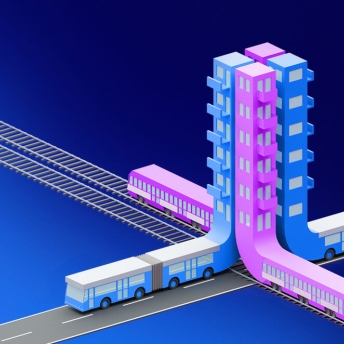François-Joseph Van Audenhove
François-Joseph assists transportation organizations in addressing complex strategic and organizational transformation programs.

Education
Past Experience

François-Joseph Van Audenhove is a Partner based in Arthur D. Little's Brussels office and is the Global Practice Manager Travel and Transportation (T&T).
François-Joseph is part of the Strategy & Organization practice and responsible for our Global Competence Center in Rail and Urban Transport. He also heads the Future of Urban Mobility (FUM) Lab, our think tank on mobility, and is a recognized key speaker on mobility topics.
François-Joseph specializes in the management of complex strategic and organizational transformation programs, serving clients across several industries on topics ranging from strategy development and implementation, strategic positioning, commercial offering redesign, value-based risk management, performance improvement to strategic competence management.

Improving airport resilience

Making the shift

The future of mobility 5.0

Public transport fare models

Sharing in success

Postal retail networks

ESG: Last call to take effective action

End-to-end incident management in transport: A key driver of customer excellence
Toward sustainable, efficient & resilient mobility systems

Leveraging account-based ticketing

How to realize the promise of Mobility-as-a-Service

Artificial intelligence in mobility

François-Joseph Van Audenhove is a Partner based in Arthur D. Little's Brussels office and is the Global Practice Manager Travel and Transportation (T&T).
François-Joseph is part of the Strategy & Organization practice and responsible for our Global Competence Center in Rail and Urban Transport. He also heads the Future of Urban Mobility (FUM) Lab, our think tank on mobility, and is a recognized key speaker on mobility topics.
François-Joseph specializes in the management of complex strategic and organizational transformation programs, serving clients across several industries on topics ranging from strategy development and implementation, strategic positioning, commercial offering redesign, value-based risk management, performance improvement to strategic competence management.

Improving airport resilience

Making the shift

The future of mobility 5.0

Public transport fare models

Sharing in success

Postal retail networks

ESG: Last call to take effective action

End-to-end incident management in transport: A key driver of customer excellence
Toward sustainable, efficient & resilient mobility systems

Leveraging account-based ticketing

How to realize the promise of Mobility-as-a-Service

Artificial intelligence in mobility
More About François-Joseph
- Solvay Business School (Brussels)Master of Business Administration
- UCL University (Louvain-La-Neuve)Master in Law
- Imphobia Media CompanyManaging Director
